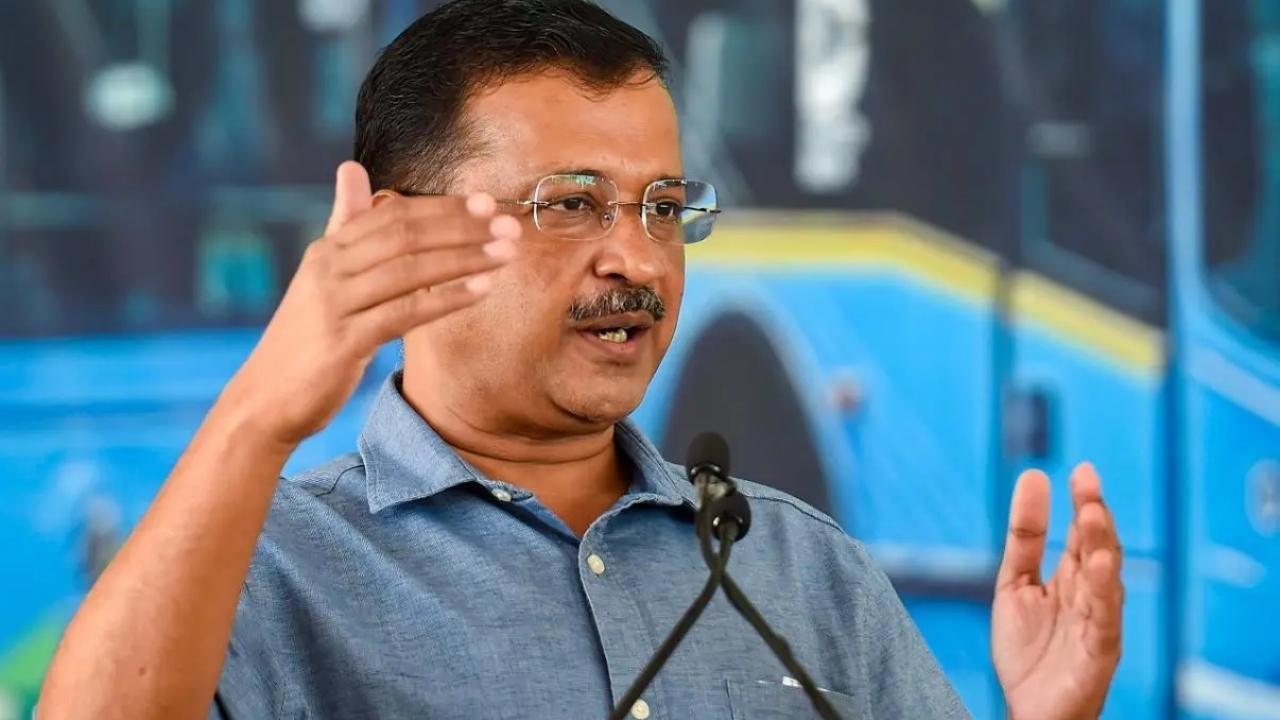A draft of the scheme has now been sent to the lieutenant governor. It will then be put up for public feedback and comments by the transport department, before being given the final shape, according to an official statement

Arvind Kejriwal. File Pic
Delhi Chief Minister Arvind Kejriwal approved a policy on Wednesday for regulating cab aggregators and delivery service providers in the city.
A draft of the scheme has now been sent to the lieutenant governor. It will then be put up for public feedback and comments by the transport department, before being given the final shape, according to an official statement.
Kejriwal approved the draft of the Motor Vehicle Aggregator Scheme 2023 that lays the foundation for regulating cab aggregators and delivery service providers in Delhi.
"This scheme prioritises the safety of passengers and ensures timely grievance redressal, while also promoting the use of electric vehicles and reducing pollution levels in the city," the chief minister said.
He explained that by transitioning to electric vehicles (EVs) and promoting electric bike-taxis, the Aam Aadmi Party (AAP) government will be able to reduce the pollution levels in Delhi and create new opportunities for employment and economic growth.
The Motor Vehicle Aggregator Scheme 2023 will be applicable to any individual or entity that operates, on-boards or manages a fleet of motor vehicles through digital or electronic means or any other means to ferry passengers or connect a driver offering to deliver or pick up a product, courier, package or parcel with a seller, e-commerce entity or consignor.
The scheme aims to ensure passenger safety during trips and the service quality of cab aggregators, while also promoting the transition to EVs. It will make it mandatory for the aggregators to install a panic button in the vehicles and integration with 112 (Delhi Police) for emergencies.
The scheme also includes a mechanism to ensure timely consumer grievance redressal by the service providers, enforcement of vehicle fitness, pollution control and validity of permits. It provides for driver remedial training in instances where a driver's performance is poor.
Also Read: Delhi CM Arvind Kejriwal being spied upon by Delhi police, alleges AAP
"The scheme will also mark a historic first for the nation where a state government will be introducing a mandatory transition of commercial vehicles from conventional vehicles to electric vehicles. The scheme provides for phased mandates for fleet operators to transition their fleets from conventional vehicles to electric," the statement said.
Its mandate will only apply to an incremental percentage of new on-boarded vehicles over a period of four years to avoid any knee-jerk reaction to existing livelihoods.
For example, five per cent of the new on-boarded cars need to be electric in the first six months of the scheme. The policy further mandates that after four years from its notification, all new commercial two-wheelers and three-wheelers will need to be EVs.
Similarly, after five years from its notification, all new commercial four-wheelers need to be EVs. The aggregators and delivery service providers shall also be mandated to switch to electric fleets by April 1, 2030.
The scheme lays the foundation for a regulatory provision for bike-taxis and rent-a-bike services.
Since Delhi has never allowed bike-taxis to operate in the city, the scheme provides for such services to be regulated. As a new business opportunity, the scheme ensures that all bike-taxis and two-wheeler renting services in the city shall only be via electric two-wheelers. These provisions are in line with the Delhi EV Policy 2020, the statement added.
The scheme follows the "polluter pays" principle. This will make the per vehicle licence fee for a conventional vehicle significantly higher than an electric vehicle.
For instance, there may be no licence fee for an electric taxi, but for a CNG taxi, it may be Rs 650. Secondly, all licence fees and penalties under the scheme shall be credited to the State EV Fund, which in turn supports all EV promotional activity.
This story has been sourced from a third party syndicated feed, agencies. Mid-day accepts no responsibility or liability for its dependability, trustworthiness, reliability and data of the text. Mid-day management/mid-day.com reserves the sole right to alter, delete or remove (without notice) the content in its absolute discretion for any reason whatsoever
 Subscribe today by clicking the link and stay updated with the latest news!" Click here!
Subscribe today by clicking the link and stay updated with the latest news!" Click here!










